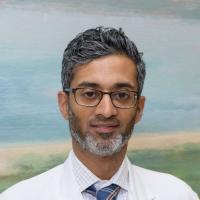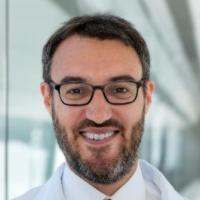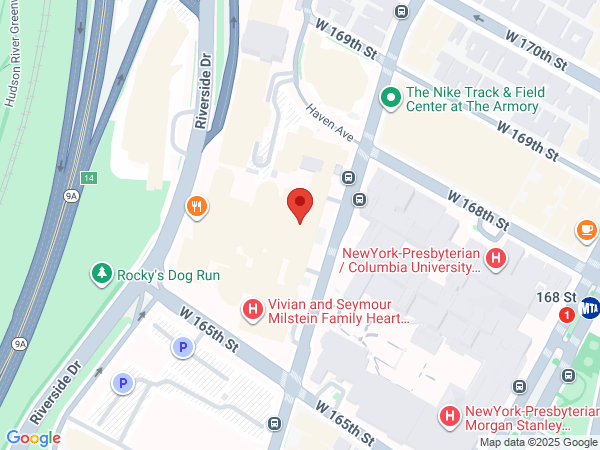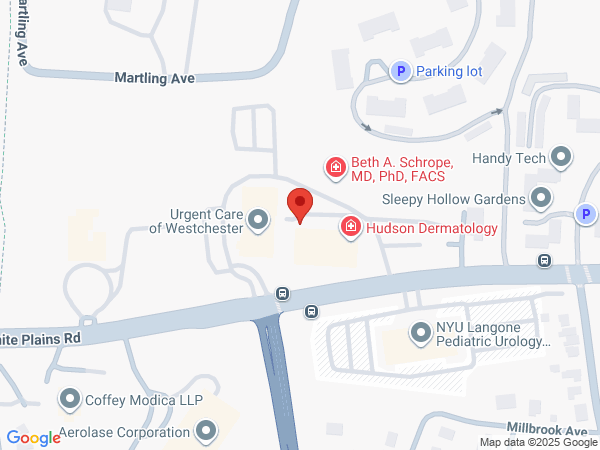Tricuspid Valve Care Service
If you or a loved one have been diagnosed with tricuspid valve disease, Columbia can help. Our Tricuspid Valve Care team offers world-class care driven by the latest research. Our physician-scientists are leading the way to new and effective treatments, including minimally invasive tricuspid valve replacement and repair.
- Often referred to as the “forgotten valve,” early symptoms of Tricuspid Valve Disease (TVD) can be hard to detect and treat.
- Because detection is difficult, it’s important to work with an experienced team of experts who have experience treating TVD.
- As part of the Columbia Structural Heart and Valve Center, our team has a proven track record of superior outcomes compared to other local hospitals, all while taking on the toughest cases.
To make an appointment with our Tricuspid Valve Care team, please call 212-342-0444 or complete our online appointment request form.
What is Tricuspid Valve Disease?
The tricuspid valve controls blood flow from the right atrium into the right ventricle. Tricuspid valve disease keeps the valve from functioning properly and has two main forms:
- Tricuspid regurgitation: when the tricuspid valve cannot fully close, blood flows backward into the right atrium. This reversed flow creates pressure that can cause structural damage to the heart as well as other organs such as the liver and kidney.
- Tricuspid stenosis: when the tricuspid valve stiffens, it becomes difficult for blood to flow out. The heart is forced to work harder, which can lead to long-term damage (heart failure).
Learn More About Tricuspid Valve Disease
Our Services
We offer the latest treatments for tricuspid valve disease, including access to clinical trials for the most advanced new devices and procedures.
Transcatheter Procedures
These minimally invasive procedures access the heart using a catheter inserted into a blood vessel in the neck or groin. A replacement valve or repair device is guided through the catheter to the heart. Treatments include:
- Annuloplasty: a ring-shaped device is implanted to reinforce the annulus, or base, of the valve and improve valve function.
- Transcatheter valve replacement: A replacement valve is implanted in the diseased valve or failed replacement valve. Previously only available through an open surgical procedure, transcatheter procedures are now an option to treat tricuspid valve disease.
- Columbia is one of a limited number of centers in the nation to offer the EVOQUE Tricuspid Valve Replacement System, which can replace the tricuspid valve without open-heart surgery. This cutting-edge device recently became the first transcatheter therapy to be granted approval by the U.S. Food and Drug Administration (FDA) for the treatment of tricuspid regurgitation (TR).
- Transcatheter tricuspid valve repair: A clamp-like device is used to hold the leaflets or the valve together, creating a more controlled flow and reducing TR.
- Columbia cardiologists have worked extensively on developing and refining less invasive therapeutic options to treat tricuspid valve disease.
- We are major participants in the TRILUMINATE trial evaluating the TriClip, an investigational clip-based transcatheter edge-to-edge repair (TEER) device for the reduction of symptomatic tricuspid regurgitation.
- Columbia is also recruiting for the CLASP II TR trial, evaluating the safety and effectiveness of the PASCAL Transcatheter Valve Repair System for TR.
- Columbia cardiologists have worked extensively on developing and refining less invasive therapeutic options to treat tricuspid valve disease.
Surgical Treatments
The tricuspid valve can also be repaired or replaced using traditional open surgery with general anesthesia. The heart is accessed directly through an incision in the chest. The type of surgery will depend on the type and severity of valve disease present. In some patients, surgery is very high risk and transcatheter options may be better. At Columbia, we employ a multi-disciplinary team approach to decide what approach is best for each individual patient.
Programs Highlights
A Leading Site for Tricuspid Valve Research
Our doctors are actively involved in new and exciting treatments for tricuspid valve disease. Columbia is an epicenter for clinical research and is a main site for major clinical trials. We are proud to have helped develop some of the most impactful advances and devices in the field, including the EVOQUE tricuspid valve replacement device.
Outcomes You Can Trust
The Columbia Structural Heart and Valve Center has a proven track record of superior outcomes compared to other local hospitals, all while taking on the toughest cases. Our team of interventional cardiologists and cardiac surgeons work together to determine the best approach for treatment, including minimally invasive procedures and hybrid surgery.
World-Class Imaging
Thanks to our unparalleled excellence in cardiac imaging, we can tailor our procedures to your specific anatomy with confidence. We aim to deliver outstanding results, not just in the short term, but for years to come.
A Team to Partner With For Years to Come
Valve diseases are chronic, long term conditions that require lifelong support. Our comprehensive care team including physicians from multiple specialties will partner with you for long-term followup and management.
Care at NewYork-Presbyterian Hospital
NewYork-Presbyterian Hospital is home to one of the most advanced Catheterization Laboratory in the nation. Our team provides the highest level of care using the latest technology, including on-site access to advanced diagnostic testing to ensure your treatment is fast, comfortable, and effective.
Columbia Virtual Visits
For some appointments, it may not be necessary to come into the office at all. We offer Virtual Visit Telehealth appointments so you can see your doctor from the comfort of your own home. When you contact us to make an appointment, our team will work with you to determine if a Virtual Visit is right for you.
What Specialist Will Be Part of My Care?
Interventional Cardiologist
An interventional cardiologist is trained to perform minimally invasive transcatheter procedures using a thin tube called a catheter inserted into an artery or vein to access and treat the heart and blood vessels. There are different subspecialties of interventional cardiologists, depending on what conditions they treat. Most transcatheter procedures are performed in a specialized facility called a catheterization laboratory, or cath lab for short.
- A structural heart and valve specialist is an interventional cardiologist who can diagnose and treat valvular heart disease. When the heart's valves don't open and close properly, it becomes harder for the heart to pump blood to the rest of the body. Thanks to recent advances, man-made valves can be inserted and implanted to take over the function of the diseased valves without open surgery. Because of their complexity, structural heart procedures like valve replacements are performed in a cath lab.
Cardiac Imaging Specialist
A cardiac imaging specialist provides essential information for diagnosing heart problems and guiding interventional procedures. They use advanced imaging technologies like computed tomography (CT), echocardiography, and X-rays to create accurate images of the heart and blood vessels. Imaging specialists and interventional cardiologists work together to map out procedures in real-time—without open surgery.
Cardiothoracic Surgeon
A cardiothoracic surgeon performs traditional heart surgery—the chest is opened, and the heart is accessed directly. For some complex procedures, cardiothoracic surgeons and structural heart and valve specialists work together to perform hybrid procedures, combining elements of interventional cardiology and traditional surgery.
General Cardiologist
A general cardiologist can diagnose and treat many forms of heart disease. These doctors are patients' first point of contact and play an important role in managing heart health. When patients with heart disease can no longer manage their symptoms with medication and lifestyle changes, general cardiologists may refer them to interventional cardiologists for treatment. General cardiologists also work with the interventional care team to manage a patient's recovery and long-term heart health.
Our Team
Interventional Cardiology
Susheel Kodali, MD
- Director, Columbia Structural Heart and Valve Center; Co-Director, Mitral and Tricuspid Center

Cardiovascular Imaging
Rebecca Hahn, MD
- Director, Interventional Echocardiography in the Columbia Structural Heart and Valve Center; Co-Director, Mitral and Tricuspid Center

Cardiac Surgery
Arnar Geirsson, MD
- Director, Cardiovascular Institute; Director, Surgical Heart Valve Program; Co-Director, Mitral and Tricuspid Center

Isaac George, MD
- Surgical Director, Columbia Structural Heart and Valve Center; Co-Director, Mitral and Tricuspid Center

Our Locations
Make an Appointment
To make an appointment with our Tricuspid Valve Care team, please call (212) 342-0444. You can also complete our online appointment request form, and our office will follow up with you soon.






